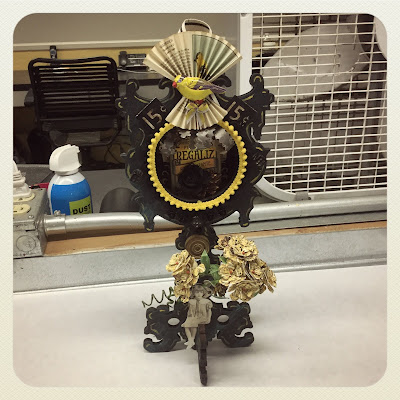Last year, I heard one parent tell another parent, "You don't have to do volunteer hours anymore, you don't have to help out." This made me sad, because I immediately thought back on the amazing influence that this parent had had on my students when his daughter was in my class. The kids loved working with him. They even had a funny nickname for him. On days when he wasn't there, they were visibly sad.
I also thought about the parent who helped out after school, sweeping up the school, cleaning the gutters, and helping to maintain the school site. He would bring his son with him on some occasions. Can you imagine watching your dad care for your school? How do you think his service made his son feel? His son is a fabulous, caring young man. Like father, like son.
I have been teaching for almost twenty years. I started out at a school which had a behavior disorder unit with a padded cell. I rarely saw parents volunteer at this school at all. In fact, the only time that I saw parents, was when the school would talk local celebrities into having assemblies to sign autographs. There was much work put into trying to get more parent support. Students experienced many difficulties, and because our attendance boundary was located in a high poverty neighborhood, parents were unable to work at the school, because they were usually struggling to make ends meet. Sometimes, I felt that a few of my students had problems which were a direct result of parental actions. There was abuse, drug addiction, and our school actually had an amazing social worker/psychologist on-site, in order to lend a helping hand. I loved the kids at this school. They were talented writers, and expressive artists.
My second school was a traditional public school. The school boundaries included both the wealthiest citizens, and the poorest. The wealthy parents participated actively, and wanted to keep their kids separated from the poorer students. Parents of the poor students generally worked at least two jobs, in order to survive. There were a few occasions where the school tried to get their input. But, the efforts seemed half-hearted at best. It felt like two completely separate schools, divided by race and by socioeconomic status.
Now, I'm at a parent participation school. Volunteer hours are no longer mandated. I have been surprised by the result. Many very active parents have taken a break from helping. Other parents have stuck it out, continuing to volunteer in the classroom, and behind the scenes. We have generous parents who drive on our monthly field trips, and they serve as chaperones.
These different working environments have allowed me to come to some conclusions. Here they are, for better or for worse:
*Students seem to feel more motivated when there are adults other than the teacher in the room. They enjoy interacting with other adults. They form positive relationships with adults, and thus feel more comfortable with all of the grown-ups in their lives.
*Parents benefit from being in the classroom, because they understand academic expectations. They see the teaching standards in action. They know the assignments that their child will receive.
*Students enjoy having their first teachers (mom & dad) help them with new challenges. They actually thrive under this model. There are generally less behavioral issues in class, so learning can be accelerated.
*Parents can model enthusiasm towards learning.
*Parents model a positive work ethic.
The other day, we went on a field trip. I watched a parent volunteer helping his son pan for gold. I watched him sit down with his son and listen to the presentations that were given. He modeled good listening. He danced the Virginia Reel with us. This dad was in it to win it. Think about the message that he was sending to his son. As I watched, I thought about how much I would have loved my dad to do any of those activities with me as a part of school.
I watch kids scan the playground, looking for a friendly parent on yard duty. There are kids who just like to talk and visit during recess. They want to know that someone is listening.
Conversely, when any adult makes a commitment to work with a child and doesn't follow through, it sends the exact opposite message. It's important to proceed with care, because kids are always watching and learning from every message that adults send, whether the message is meant to be sent, or not.
When I was getting my teaching credential, it was explicitly for working with "at-risk" kids. I read a lot of literature about what kids need to succeed in life. One of the top ten things that students all need, is at least one or two adults who care deeply. What a sweet opportunity it is to be the one. Becoming a mentor is a sure way for kids to feel empowered. And, the best way to mentor children is to "help out".































































